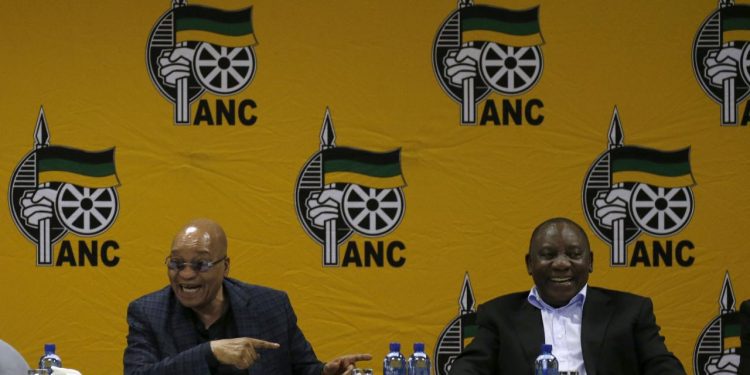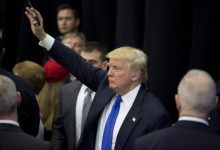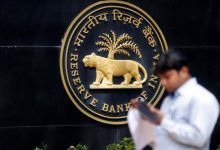South African presidency spokesman Bongani Ngqulunga was aghast on Tuesday at Communist Party (SACP) demands that President Jacob Zuma confirm or deny plans to sack his deputy Cyril Ramaphosa and replace him with Nkosazana Dlamini Zuma. Here’s a report for Different Truths.
South African presidency spokesman Bongani Ngqulunga was aghast on Tuesday at Communist Party (SACP) demands that President Jacob Zuma confirm or deny plans to sack his deputy Cyril Ramaphosa and replace him with Nkosazana Dlamini Zuma. “The allegations reported in the media that President Jacob Zuma wishes to fire Deputy President Cyril Ramaphosa and replace him with Dr. Nkosazana Dlamini Zuma are preposterous and outrageous,” said Ngqulunga. “The allegations of ethnic mobilisation by the president are equally without merit,” he added for good measure.
The SACP statement issued by Alex Mashilo read: “SACP condemns ethnic mobilisation [and] challenges President Zuma to deny or confirm emerging information that, in pursuit of private interests, he is preparing to fire Deputy President Cyril Ramaphosa. “The SACP calls upon the whole of our movement, as well as South Africans in general, to reject regressive forms of mobilisation and abuse of state power to try and manipulate and further polarise internal ANC and alliance politics.”
Ngqulunga’s case might have been stronger had he omitted the risible assertion that Zuma, who marketed himself as “100 percent Zulu boy” when ANC deputy president and facing a rape charge, has no truck with ethnic mobilisation. The president’s supporters were expected to rally in numbers on Monday outside the ANC Luthuli House headquarters in Johannesburg for a Hands off Zuma protest against plans to instruct him to stand down as state president and be replaced by Ramaphosa. This would replicate the procedure by which Zuma took up the presidency after the ANC national executive committee told his predecessor Thabo Mbeki to step aside.
The protest was orchestrated by Black Land First (BLF), a schism from Julius Malema’s Economic Freedom Fighters (EFF) led by Andile Mngxitama, which retains the pro-Zuma stance once adopted, but long since dropped, by Malema. It was backed by Amabutho e-Sizwe Sama Zulu whose convener Sizwe Zuma declared that these Zulu “warriors” would converge on Luthuli House to ensure that Zuma stays in office. South Africa’s rumour machine was fed by Zuma’s visit to King Goodwill Zwelithinika Bhekuzulu at his Ondini Royal Palace in Ulundi, inspiring suggestions of an attempt to persuade the Zulu traditional leader to back the president’s bid to remain in office. The presidency insisted that the encounter was a “long-standing courtesy meeting” postponed from January “due to diary challenges on both sides.”
In the event, the Zulu warrior mobilisation didn’t materialise, leaving small numbers of pro-Zuma BLF supporters to be attacked by ANC members and supporters claiming to defend their HQ. Images of them wearing “This ANC is not for sale” T-shirts, carrying bricks and clubs, were captured on video, featuring disgraceful assaults on women. One was seen to be kicked while on the ground and another clubbed as she cowered in a pickup. Police intervened to separate the two sides, disarming the ANC assailants. ANC Greater Johannesburg region confirmed Thabiso Setona, a local branch secretary, had been suspended, adding that he had handed himself in to police.
The ANC share of polls in general elections has fallen steadily since the euphoric days of the country’s first democratic elections in 1994. Voters’ impatience to see the emergence of the advances envisaged in the ANC Freedom Charter is one factor, but more striking is popular awareness that the belt-tightening and self-restraint prescribed for them by their governments have not applied equally to those in office.
Capitalist interests, both domestic and overseas, took the political demise of their former apartheid regime allies in their stride, reaching out to the new rulers even before the transition to democracy. Citing the Soviet Union’s self-induced disappearance to pronounce that socialism was off the agenda and a market economy was the only game in town, ANC leaders’ new-found friends offered assistance of all kinds to woo them into compliance and against radical change. The policy of black economic empowerment (BEE) transformed comrades of modest means almost overnight into multimillionaires.
When Mandela, who had favoured miners’ union leader Ramaphosa as his successor, was persuaded to back Mbeki by, among others, his close comrade Oliver Tambo, Ramaphosa took the BEE route, hoovering up directorships and becoming, by repute, the second richest African in the country.
Zuma has been embroiled in several financial scandals over the years, accused of selling political protection and influence, most notably over his complicity in state capture by the wealthy Gupta family from India. The nadir of this journey was his trial for the rape of Fezekile Kuzwayo, the lesbian daughter of close comrades, when Zuma testified to finding her in a state of arousal and Zulu tradition dictated that he could not leave her unfulfilled without doing his duty as a man.
Ramaphosa, who was backed strongly by the trade unions in Cosatu for the presidency against Zuma’s estranged wife Nkosazana Dlamini Zuma, is viewed by them as honest in comparison to the current incumbent.
ANC NEC members have been tight-lipped about events of the past week which have seen the postponement of the president’s State of the Nation Address (Sona) to both houses of parliament and of a scheduled NEC emergency meeting.
The ANC president knows that an 18-month election campaign, with Zuma still in office, will be an albatross around his and the party’s neck.
Unspecific ANC statements about progress being made in talks between the two presidents gave way yesterday to Ramaphosa’s clarification.
His reference to “direct discussions on the transition and matters relating to his position as the president of the republic” leave no doubt as to what he wants, while the “postponement until further notice” of Sona indicates that Zuma will never deliver it.
Both men know that the parliamentary opposition will not allow a Sona speech to proceed and that a no-confidence motion scheduled for February 22 could well be carried.
Even if and when Zuma leaves office, it won’t be a picnic for the ANC and Ramaphosa because EFF leader Malema has already threatened to go after him more strongly than Zuma has been pursued, but as long as he remains the only way for the ANC is down. Ramaphosa’s assertion that, “throughout this process, I am guided by the principle that the interests and needs of the South African people are paramount” ought to be superfluous but reflect the scale of the problem and the need for change.
John Haylett
The writer is the Morning Star’s political editor.
©IPA Service
Photos from the Internet
#Zuma #SouthAfrican #Mandela #BonganiNgqulunga #CommunistParty #IPA #DifferentTruths





 By
By
 By
By

 By
By